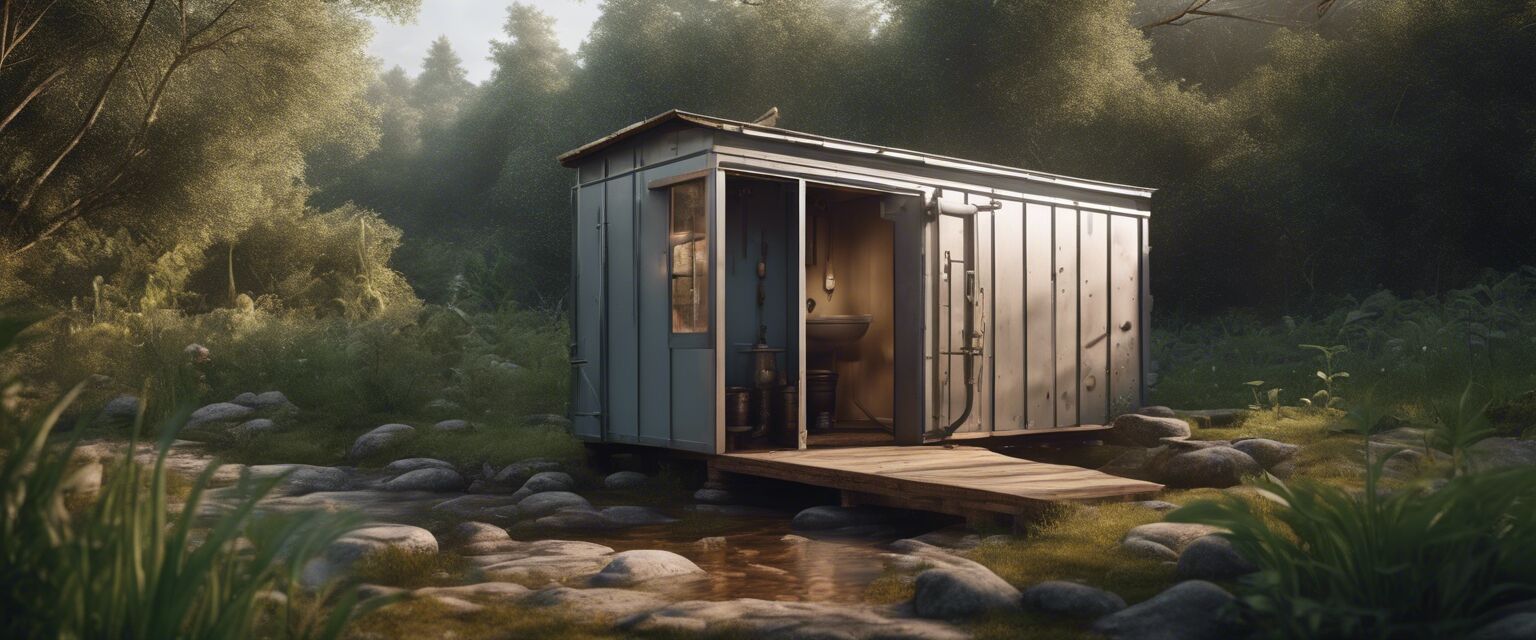
Sustainable Hygiene Practices
Key Takeaways
- Understanding sustainable hygiene is crucial for off-grid living.
- There are various methods for water purification and waste management.
- Natural products can be incorporated into personal care routines.
- Practices can reduce environmental impact while maintaining health.
Maintaining hygiene and sanitation in an off-grid environment is vital for health and well-being. This pillar page will explore various sustainable practices, methods for water purification, and natural alternatives to conventional hygiene products. Whether you are living off-grid or preparing for emergencies, these practices will help you stay clean and healthy while being conscious of the environment.
Water purification methods
Water is the backbone of hygiene and sanitation. Here are some effective methods to purify water in an off-grid setting:
| Method | Description | Pros | Cons |
|---|---|---|---|
| Boiling | Bringing water to a rolling boil for at least one minute. | Effective against most pathogens. | Requires fuel; may not purify chemical contaminants. |
| Solar Water Disinfection (SODIS) | Using sunlight to purify water in transparent bottles. | Low energy cost; simple method. | Requires several hours of sunlight. |
| Filtration | Using a filter system to remove impurities. | Effective against sediment and bacteria. | Filters need regular maintenance; may not remove viruses. |
| Chemical Treatment | Adding chlorine or iodine to water for disinfection. | Effective against many microorganisms. | May affect taste; requires proper dosage. |
Waste management practices
Proper waste management is essential for maintaining hygiene. Here are some sustainable practices:
- Compost Toilets: These toilets use aerobic decomposition to manage human waste, turning it into compost for non-edible plants.
- Greywater Systems: Reuse water from sinks and showers for irrigation, reducing water waste.
- Biodegradable Waste: Utilize composting for kitchen scraps and yard waste.
- Burning: Some waste can be incinerated safely, minimizing landfill use.
Natural hygiene products
Switching to natural hygiene products can benefit both your health and the environment. Consider these options:
| Product Type | Conventional Product | Natural Alternative |
|---|---|---|
| Soap | Commercial antibacterial soap | Homemade herbal soap |
| Shampoo | Store-bought shampoo | Cleansing clay or herbal rinses |
| Deodorant | Chemical deodorant | Coconut oil and baking soda mix |
| Toothpaste | Commercial toothpaste | Homemade baking soda and essential oil paste |
Best practices for off-grid hygiene
- Plan ahead: Ensure you have adequate supplies for water purification and waste management.
- Stay organized: Designate specific areas for hygiene activities like washing and waste disposal.
- Educate others: Share knowledge about sustainable practices with family and friends.
- Monitor health: Keep an eye on any signs of illness and adjust practices as needed.
- Stay adaptable: Be ready to change your methods based on available resources and environmental conditions.
Tips for beginners
- Start small by incorporating one or two sustainable practices into your routine.
- Experiment with natural products to find what works best for you.
- Stay informed about new sustainable hygiene techniques and products.
- Consider joining local off-grid communities for shared resources and support.
Conclusion
Sustainable hygiene practices are crucial for anyone living off-grid. Not only do they promote health and well-being, but they also protect the environment. By implementing effective water purification methods, proper waste management, and utilizing natural hygiene products, you can maintain a clean and healthy lifestyle while minimizing your ecological footprint.
Pros
- Reduces reliance on commercial products.
- Supports environmental sustainability.
- Encourages self-sufficiency and creativity.
- Enhances health with natural alternatives.
Cons
- May require an initial investment in supplies.
- Learning curve for new practices.
- Not all methods may be suitable for every region.
Further reading
For more information on related topics, check out our other articles:








